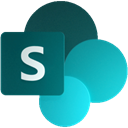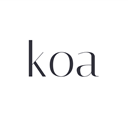Uncovering the Best Portofino Alternatives for Your Web Development Needs
Portofino is a free and open-source web framework renowned for helping developers build robust enterprise applications with a focus on productivity, features, and architecture. Its capabilities include content management, CRUD operations, database connectivity, calendars, charts, and security, all customizable with Groovy. While Portofino offers a powerful wizard to quickly connect to existing databases and create web applications, there are many reasons why developers might seek a Portofino alternative. These reasons could range from specific feature requirements, preferred programming languages, integration needs, or simply exploring different development paradigms.
Top Portofino Alternatives
Whether you're looking for a low-code platform, a comprehensive content management system, or a full-stack framework, the following alternatives offer diverse solutions to meet your web application development goals.

HumHub
HumHub is a free social network software and framework that can be a strong Portofino alternative, particularly for those looking to build collaborative and social applications. It's a lightweight yet powerful solution available on Freemium, $, $ $, Open Source, Mac, Windows, Linux, Web, and BSD platforms, with self-hosting options. Key features include intranet functionality, PHP support, real-time collaboration, social networking capabilities, task management, and team collaboration, making it ideal for creating dynamic community or internal communication platforms.

Zoho Creator
Zoho Creator is a robust low-code application development platform that serves as an excellent Portofino alternative for users seeking to build enterprise-class applications with minimal coding. It supports deployment on mobile, tablet, and web, available as Freemium, $ $, $, Web, Android, iPhone, Android Tablet, iPad, and even Apple Watch. Its features include web-database integration, customer analytics, comprehensive database management, offline capabilities, vendor management, and workflow automation, allowing for rapid development of complex business solutions.

Ruby on Rails
Ruby on Rails is a highly popular open-source full-stack web application framework for the Ruby programming language, making it a powerful Portofino alternative for developers who prefer a more code-centric approach. Available for Free, Open Source, Mac, Windows, and Linux, Rails provides a complete ecosystem for web development. Its strengths lie in its object-oriented language features and comprehensive tools for building complex web applications efficiently.

Plone
Plone is an open-source content management system (CMS) built on the Zope application server and written in Python. As a free and open-source, self-hosted solution for Python, it stands out as a strong Portofino alternative for content-heavy applications. Plone is renowned for its power, reliability, security, and ease of use, offering robust features for publishing, Python integration, web server capabilities, and workflow automation.

eXo Platform
eXo Platform is a Digital Workplace solution designed for enterprises, making it a compelling Portofino alternative for organizations focused on collaboration and internal communication. It's available as Freemium, $, $ $, Open Source, Mac, Windows, Linux, Web, Android, iPhone, iPad, Self-Hosted, and Software as a Service (SaaS). Its extensive feature set includes app integration, chat, file sharing, group collaboration, real-time collaboration, shared calendars, social intranet functionalities, SaaS capabilities, task management, team collaboration, team messaging, and comprehensive teamwork tools.

VFront
VFront is a dynamic front-end for MySQL or PostgreSQL databases, written in PHP and JavaScript, serving as a viable Portofino alternative for those needing quick data management interfaces. This free and open-source tool is compatible with Mac, Windows, Linux, and Web platforms. Its key features include efficient database management, direct database interaction, and web-based AJAX-style forms for managing data.

CUBA Platform
CUBA Platform provides a powerful full-stack architecture along with Rapid Application Development (RAD) tools, making it an excellent Portofino alternative for fast development of modern business web applications. It is free and open-source, supporting Mac, Windows, and Linux. Notable features include built-in auditing, Java IDE capabilities, IDE integration, RAD tools, and comprehensive web development support, streamlining the creation of complex enterprise systems.

Microsoft SharePoint
Microsoft SharePoint is a well-known commercial platform for sharing and managing content, knowledge, and applications, positioning it as a strong Portofino alternative for enterprise environments, especially those integrated with Microsoft ecosystems. Available as Commercial, $, $ $, for Windows, Web, Android, iPhone, and Windows Phone, SharePoint empowers teamwork with features like cloud-based functionality, cloud sharing, real-time collaboration, and comprehensive team collaboration tools.

Koa
Koa is an expressive middleware for Node.js, utilizing generators via 'co' to simplify the writing of web applications and APIs, making it a compelling Portofino alternative for JavaScript developers. As a free and open-source solution for Mac, Windows, and Linux, Koa's stack-like middleware flow provides an elegant approach to web development. Its focus on asynchronous operations and robust developer tools ensures a highly enjoyable and efficient coding experience.

Wagtail CMS
Wagtail CMS is a content management system built on Django, making it an excellent Portofino alternative for developers and designers who prioritize user experience and precise control over their content. This free, open-source, and self-hosted Python/Django solution is highly focused on providing a fluid content editing experience while offering powerful tools for developers. Its key features include strong Django integration and native Python support.
The landscape of web development frameworks and platforms is rich and varied. While Portofino offers a solid foundation for enterprise applications, exploring these alternatives can open doors to new possibilities, better feature alignment, or a more fitting development workflow. We encourage you to delve deeper into each option, considering their platforms, open-source status, and specific features to determine the best fit for your unique project requirements.